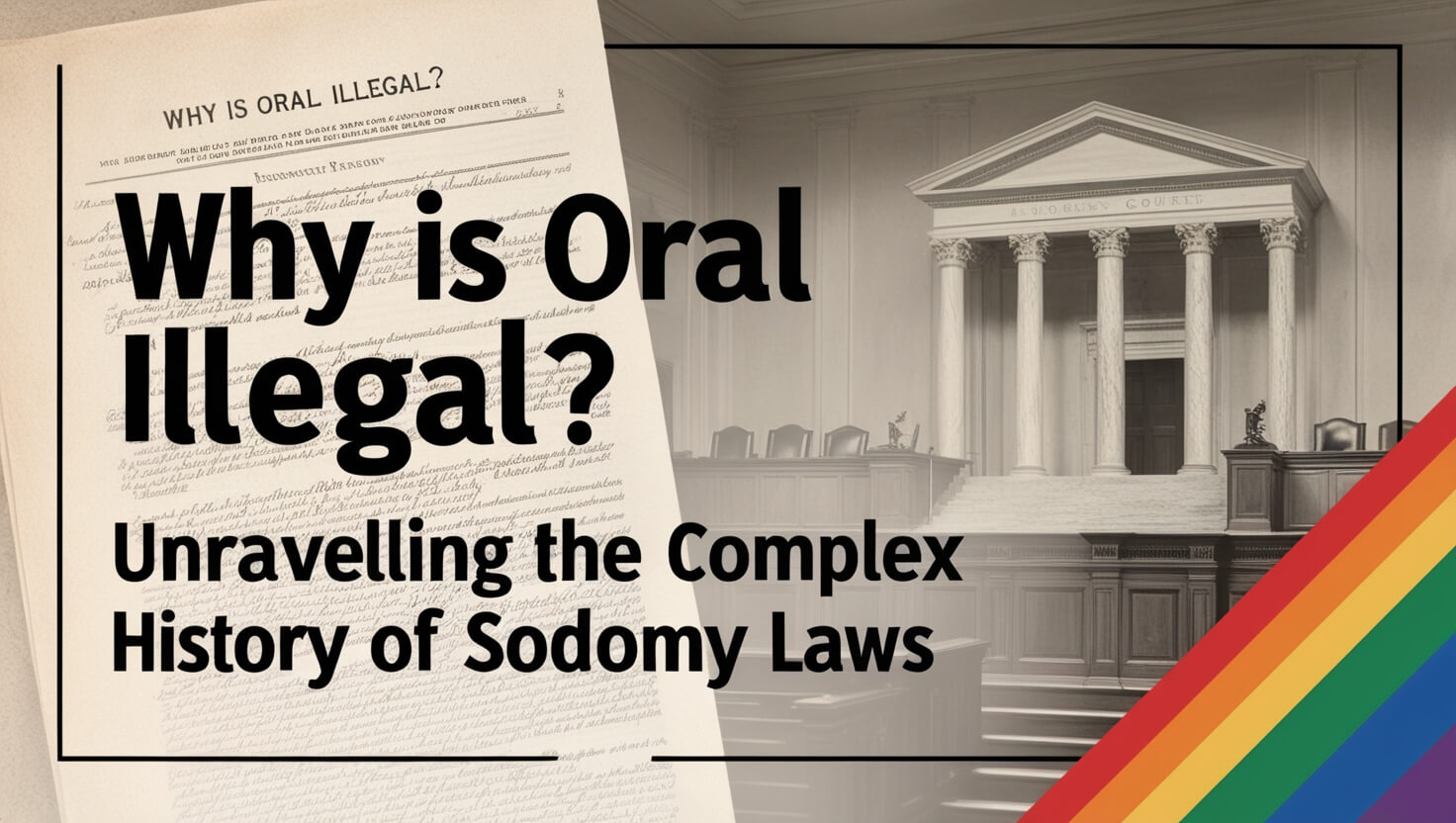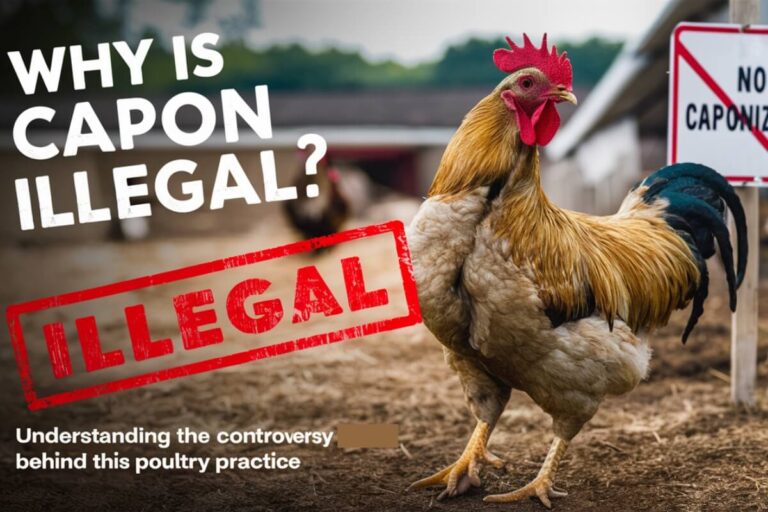Why Is Oral Illegal? Unraveling the Complex History of Sodomy Laws

Oral sex, a common intimate practice, has a complicated legal history in the United States and around the world. Despite its prevalence, many people still wonder: why is oral illegal in some places? The truth is, in most of the U.S., it isn’t. However, the legal status of oral sex has changed dramatically over time, and some states still have outdated laws on the books. This article will explore the history, current status, and ongoing debates surrounding the legality of oral sex.
The History of Oral Sex Laws
To understand why oral sex was once widely illegal, we need to delve into the history of sodomy laws.
Ancient and Medieval Perspectives
The concept of outlawing certain sexual practices dates back thousands of years. Many ancient civilizations had rules governing sexual behavior, often rooted in religious or cultural beliefs. In medieval Europe, the Catholic Church played a significant role in shaping attitudes towards sex, condemning acts considered “unnatural” or non-procreative.
Colonial America and Early U.S. Laws
When European settlers arrived in America, they brought these attitudes with them. The Puritans, in particular, established strict moral codes that influenced early American law. By the time the United States was founded, all 13 original colonies had laws against sodomy, which often included oral sex.
20th Century Legal Developments
Throughout much of the 20th century, oral sex remained illegal in many states. These laws were part of broader sodomy statutes that criminalized various non-procreative sexual acts. However, enforcement was often selective and targeted specific groups, particularly LGBTQ+ individuals.
Current Legal Status of Oral Sex in the United States
Today, the legal landscape for oral sex in the U.S. is vastly different from the past, thanks to significant court decisions and changing social attitudes.
Lawrence v. Texas: A Landmark Decision
The most crucial turning point came in 2003 with the Supreme Court case Lawrence v. Texas. This landmark decision struck down sodomy laws across the country, effectively legalizing consensual oral sex between adults in private settings. The Court ruled that such laws violated the right to privacy protected by the Due Process Clause of the Fourteenth Amendment.
States with Remaining Sodomy Laws
Despite the Lawrence v. Texas ruling, some states have kept their sodomy laws on the books. As of 2024, 12 states still have such statutes, including Florida, Georgia, Louisiana, and Texas. However, these laws are unenforceable due to the Supreme Court decision.
Enforcement Challenges and Constitutional Issues
While these remaining laws can’t be enforced for private, consensual acts between adults, their existence can still cause problems. They may be used to discriminate against LGBTQ+ individuals or invoked in other legal contexts. This has led to ongoing efforts to formally repeal these outdated statutes.
Reasons Behind Historical Oral Sex Prohibitions
Understanding why oral sex was once widely illegal requires examining the various justifications used to support these laws.
Religious and Moral Objections
Many sodomy laws had roots in religious teachings that viewed non-procreative sex as sinful. Some religious traditions interpreted biblical passages as condemning oral sex and other non-vaginal intercourse. These beliefs heavily influenced lawmaking, especially in earlier periods of American history.
Reproductive Concerns
In an era before reliable birth control, there were concerns about any sexual practices that didn’t lead to procreation. Some viewed oral sex as a way to avoid pregnancy, which was seen as the primary purpose of sexual activity.
Gender and Sexuality Discrimination
Sodomy laws were often used to target and discriminate against LGBTQ+ individuals. By criminalizing same-sex sexual behavior, these laws reinforced societal prejudices and allowed for legal persecution of gay and lesbian people.
The Impact of Oral Sex Laws on Society
The criminalization of oral sex has had far-reaching consequences beyond the bedroom.
LGBTQ+ Rights and Discrimination
Sodomy laws have been a significant barrier to LGBTQ+ equality. They’ve been used to justify discrimination in employment, housing, and other areas of life. Even after Lawrence v. Texas, the existence of these laws on the books has been cited in arguments against LGBTQ+ rights.
Public Health Implications
Criminalizing certain sexual practices can have negative public health consequences. It may discourage open discussions about sexual health, limit access to information and resources, and create barriers to STI prevention and treatment.
Privacy and Personal Freedom Issues
The debate over oral sex laws touches on fundamental questions of personal freedom and the right to privacy. Many argue that the government has no place regulating consensual sexual behavior between adults in private settings.
Legal Challenges to Oral Sex Laws
The path to decriminalizing oral sex has involved numerous legal battles and court cases.
Notable Court Cases
Before Lawrence v. Texas, several other cases challenged sodomy laws. For example, Bowers v. Hardwick in 1986 upheld Georgia’s sodomy law, a decision that would stand for 17 years until Lawrence overturned it. These cases reflect the evolving legal and social attitudes towards sexual behavior.
Arguments For and Against Sodomy Laws
Supporters of sodomy laws often cite moral and religious reasons, arguing that the state has an interest in upholding certain sexual norms. Opponents argue that these laws violate personal freedom, discriminate against LGBTQ+ people, and are fundamentally unconstitutional.
The Role of Civil Rights Organizations
LGBTQ+ rights organizations, the ACLU, and other civil liberties groups have played a crucial role in challenging sodomy laws. These organizations have brought lawsuits, lobbied for legislative changes, and worked to change public opinion on these issues.
Oral Sex Laws Around the World
The legal status of oral sex varies significantly from country to country, reflecting diverse cultural and legal traditions.
Comparison of International Legislation
While many Western countries have decriminalized consensual oral sex between adults, it remains illegal in some parts of the world. For example, some Middle Eastern and African countries still have laws prohibiting sodomy, which can include oral sex.
Cultural Attitudes and Legal Approaches
Legal approaches to oral sex often reflect broader cultural attitudes towards sexuality. In some societies, there’s a greater acceptance of diverse sexual practices, while others maintain more conservative views that influence their laws.
Global Trends in Decriminalization
There’s a global trend towards decriminalizing consensual sexual acts between adults, including oral sex. This shift is often linked to growing recognition of LGBTQ+ rights and changing societal attitudes towards sexuality.
The Future of Oral Sex Legislation
While oral sex is now legal in most of the U.S., there are still ongoing legal and social debates surrounding these issues.
Efforts to Repeal Remaining Laws
Activists and lawmakers in states with remaining sodomy laws are working to formally repeal these statutes. While these laws can’t be enforced, their removal is seen as an important symbolic step and a safeguard against potential future misuse.
Potential Supreme Court Challenges
There’s potential for future Supreme Court cases to further clarify and strengthen protections for sexual privacy. This could include challenges to the remaining sodomy laws or cases addressing related issues of sexual freedom and LGBTQ+ rights.
Shifting Social Attitudes and Legal Reform
As social attitudes continue to evolve, there may be further legal reforms related to sexual behavior. This could include stronger protections against discrimination based on sexual orientation or gender identity.
Implications for Individuals and Relationships
The legal status of oral sex has real-world implications for individuals and couples.
Legal Risks and Protections
While consensual oral sex between adults is now legally protected in private settings, it’s important to be aware of laws regarding public sex acts, age of consent, and other related issues.
Impact on Sexual Health Education
The historical criminalization of oral sex has influenced sex education programs, often leading to limited or inaccurate information about this common sexual practice. More comprehensive sex education is crucial for promoting sexual health and well-being.
Navigating Intimate Relationships in Varying Legal Landscapes
For individuals in states with remaining sodomy laws or those traveling internationally, it’s important to be aware of local laws and potential risks, even if these laws are technically unenforceable.
In Closing: The Ongoing Debate Over Oral Sex Laws
The question “why is oral illegal?” reflects a complex history of legal, moral, and social attitudes towards sexual behavior. While consensual oral sex between adults is now legal throughout the United States, the legacy of sodomy laws continues to impact society. The remaining unenforceable laws, ongoing discrimination, and global variations in legislation show that these issues are far from settled.
As we move forward, it’s crucial to continue the conversation about sexual freedom, privacy rights, and equality under the law. By understanding the history and current status of oral sex laws, we can work towards a future where consensual intimate acts between adults are fully protected and respected.
The journey from widespread criminalization to legal protection demonstrates the power of social change and legal advocacy. It also reminds us of the importance of remaining vigilant in protecting hard-won rights and continuing to push for full equality for all individuals, regardless of their sexual orientation or practices.
As society continues to evolve, so too will our laws and attitudes towards sexual behavior. The key is to ensure that these changes promote health, respect individual rights, and protect the most vulnerable members of our society. By doing so, we can create a world where the question “why is oral illegal?” becomes a relic of the past, replaced by a more open, accepting, and legally protective approach to human sexuality.






